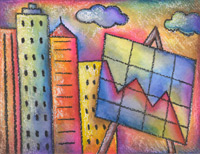
Phoenix real estate: Report shows foreclosures increased in February
Read or listen: A report on real estate market conditions in Phoenix shows that foreclosures represented 43 percent of total transactions in February. That’s a significant increase from the 30 percent of the closing months of 2010, when many banks put a pause on foreclosures as procedures were reviewed. Jay Butler, associate professor of real estate and author of the W. P. Carey School’s Realty Studies Report, says that economic uncertainty will continue to bedevil the market, which remains dominated by investors rather than owner occupants. Butler met with Knowledge@W. P. Carey to talk about the data behind the report, and what may be ahead for Phoenix.



